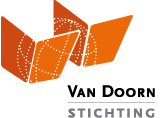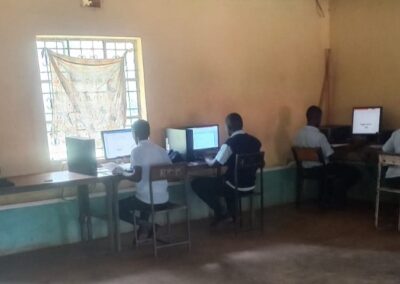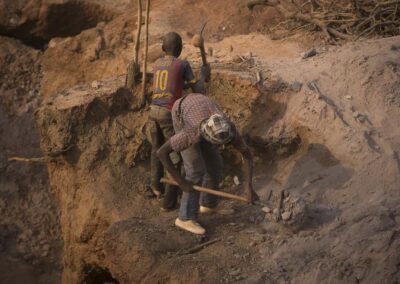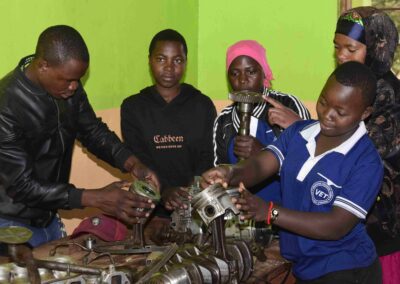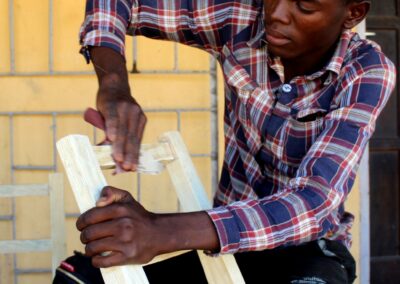Through a multi-year partnership with GAAS-Mali access and quality of basic education and vocational training is being improved. In a first phase (2015-2016) three classrooms for primary education were built, and a greenhouse and vegetable garden established to provide for addition income for the parents and to persuade them to also send their daughters to school. In a second phase (2017-2018) the remaining classrooms and sanitary facilities were built with endowments of sanitary kits. In a third phase (2022-2023) arrangements will be made to provide for vocational training for those who completed primary education and school dropouts.
For this third phase, funds are needed for vocational training and for the provision of toolkits to the trainees. The municipality provides part of the funds needed and for the remaining € 5,000 the Van Doorn Foundation is looking for sponsors!
Amount collected: € 0,-
Project information
The situation
Noukoula (Segou Region – Mali) has a population of just 30,000 inhabitants and is located 150km east of the capital Bamako and 80km south of the regional capital Segou. Education facilities are very limited, the sole primary school was built by the non-governmental organisation GAAS-Mali, initially only for the children of the Noukoula and six surrounding villages. GAAS-Mali wanted to give boys and girls equal opportunity to education and requested and obtained support to build a greenhouse and vegetable garden to provide parents an incentive in sending their daughters to school. For further training boys and girls must go to larger cities. Over 50% of the boys then drop-out because they have no family or place to stay in the city and all the girls drop-out because their parents do not consent. War torn Mali, in the central part of Mali, where Noukoula is located made the pursuit of further education very difficult and de covid-19 pandemic put a halt to any education through 2021.
The importance of the project
UNICEF reports education in war-torn Mali is in a state of crisis and in urgent need of international support to repair the damaged education system and get children back to school. International donors respond quickly to emergencies with money for food, water, health care and other basic needs. But they tend to give little for education, which is low on their list of priorities. At the start the 2022-2023 schoolyear, 1500 schools are still closed in central and northern Mali because of security concerns, preventing one-quarter of a million children from getting an education. This is on top of the one million children who regularly do not attend school because of poverty, chronic lack of infrastructure and teachers. Financial support will make it possible for many children deprived of an education to go back to school.
The implementing organisation
GAAS Mali was established in 2008, its objectives are the empowerment of communities and to provide them access to basic social services. Most of its experience is in empowerment in agricultural activities (including irrigation) and in agro-businesses. In past eight years it also provided empowerment training for women (nine informal training programs to in total 400 trainees duration 1-3 months). GAAS-Mali has four offices with 84 staff members. GAAS-Mali delivers training either in the open air, in classrooms from schools in the villages and collaborated with the Wassa Institute for vocational training.
The envisaged project results
The first phase resulted in the first classrooms being built for basic education and the establishment of a water well, greenhouse / vegetable garden, where parents of the school children can grow vegetables, which they sell on the market in Konobougou. With the sale of the vegetables, the income of the local population improved, and parents were encouraged to send their daughters to school. In short, a project with a strong gender equality and poverty reduction factor! The second phase resulted in the remaining classrooms and sanitary facilities for the school being built. The objective to provide for primary education was achieved with a nearly 50-50 attendance by boys and girls. The intended third phase focuses on vocational training and initially aims at training 20 school leavers and school dropouts in most demanded skills. Planned training includes in tiling and plumbing technics, photovoltaic energy, and solar-energy installations, and in agro-business and food production technics.
Chance of sustainability
At the end of the vocational training, trainees will be equipped and will set up as private service providers in the region. Their services will be paid for to allow them to take care of themselves and equip themselves more. Each trained technician is estimated to supervise at least three apprentices in his field. This apprenticeship will offer the chance to at least 60 young people to be trained on the job and to become qualified masters to increase the number of service providers. This learning chain will continue for the benefit of young girls and boys. They may be organized into associations of service providers to enable them to position themselves for the service markets and to strengthen their economic capacities.
Required funds
For this third phase, funds are needed for vocational training by the Wassa Institute (tiling and plumbing technics, photovoltaic energy, and solar-energy installations), by the Food Processing and Distribution Department (in agro-business and food production technics), and by GAAS-Mali and for the provision of toolkits to the trainees (toolkits for tiling and plumbing, toolkits for solar energy installation, and toolkits for food production).
The municipality and the community will provide part of the funds needed (equivalent € 800) and for the remaining € 5,000 the Van Doorn Foundation is looking for sponsors!
The progress of phase 1
In November 2015 the local population completed the masonry for the new classrooms up to roof height with cement made available by the municipality Konobougou. With funds we have received from the Foundation Fair Share and the proceeds of a charity Spring Market at the School of the Future in Ede we could construct the roof, lay the floor and install windows and doors. For the finishing of the interior and exterior walls of the population made unskilled labour available and we paid for the cement and skilled labour.
The late 2015 rain season brought a major setback because the ‘old’ classrooms were badly damaged. The new classrooms had therefore to be put into use to accommodate the pupils from collapsed classrooms. On the other hand, a blessing in disguise that the new classrooms were almost finished, so that ongoing school activities could continue. The envisaged expansion of the school however had to be postponed.
The construction of the sanitary facilities and the purchase of furniture took place in the summer of 2016 – with funds from the Addo Kranendonk Fund. In addition the parents’ committee, parents and schoolchildren were educated on hygiene and provided with hygiene kits. The teachers of the school received special training enabling them to continue the hygiene education.
At the same time with funding from Rabobank | Share4More a greenhouse was set up, a water well drilled and a water tower built. The greenhouse yielded already a good harvest, half of which is used for own consumption and the other half is sold on the local market. The revenues are used to purchase teaching material and footwear and cloths for pupils from very poor families.
The progress of phase 2
The first phase of the project was completed by the end of the summer of 2016 and evaluated with GAAS-Mali and the school. Everyone was very motivated to sustain these successes and to continue them! Hence, the Foundation has agreed to fund a second phase of the project: to build the 3 additional classrooms so that the initial planned capacity expansion can be realized. For this extension – which was realized in 2,5 years – an amount of € 21,000 is has been made available (€ 7,000 per classroom per year): the Aalbers Kersten Holding from The Netherlands sponsored half of this funding and the other half was covered by a gift of ASN Foundation!
The 2nd phase of the project started in the 4th quarter of 2017. In the 1st quarter of 2018 the construction site was prepared and the foundation was laid. And in the course of 2018, the population made the cement blocks and the walls were bricked by craftsmen and provided with reinforced concrete ring beams. The work was stopped during the rain-season – from June to September – because in that period everyone is busy with agricultural activities on their land.
In the course of 2019 the roof was placed on the school, the windows and doors were placed, the classrooms were equipped with ceilings and all the inside and outside walls were finished. Ultimately all classrooms were ready by the end of 2019.
For these projects your support is necessary!
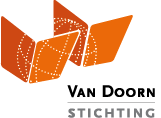
Bedankt!
Bedankt dat je wilt bijdragen aan dit project! Vul hieronder het formulier in en je wordt naar een iDeal pagina gebracht om de betaling te kunnen doen.
